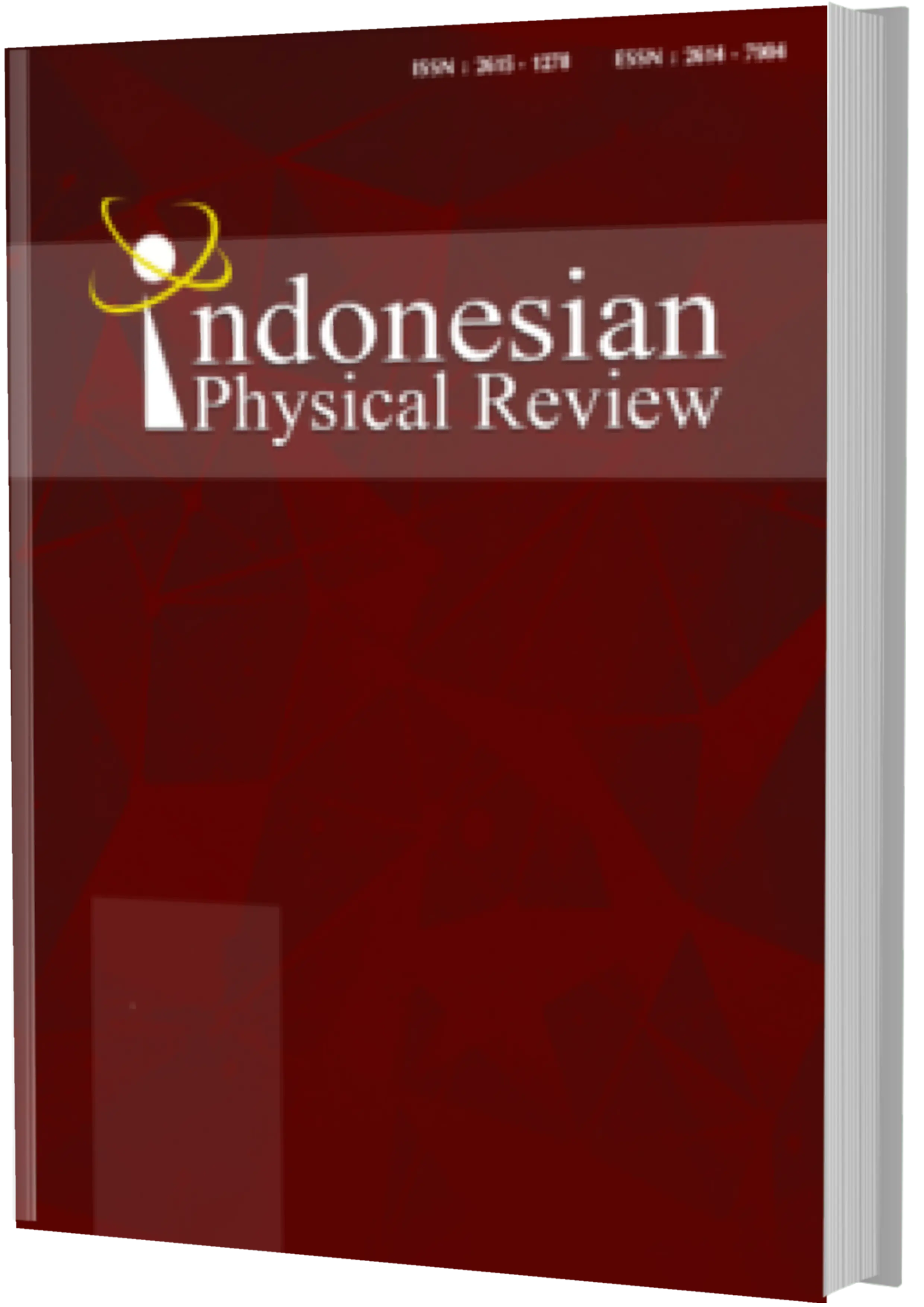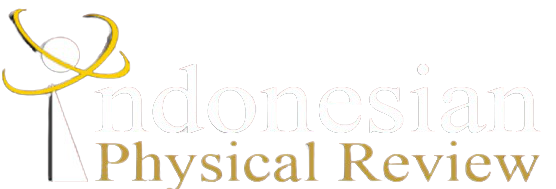About the Journal
| Journal title | : | Indonesian Physical Review |
| Initials | : | IPR |
| Editor-in-chief | : | Lily Maysari Angraini |
| Online ISSN | : | 2614-7904 |
| DOI Prefix | : | 10.29303/ipr |
| Indexing | : | Google Scholar and view more |
| Peer Review Process | : | Double-blind |
| Frequency | : | 3 issues per year (January, May, & September) |
| Publisher | : | Faculty of Mathematics and Natural Sciences, Universitas Mataram |
| Citation Analysis | : | Dimension, Google Scholar |
| Language | : | English |
Indonesian Physical Review (IPR) is an open-access journal for all readers featuring research developments in physics, both experimentally and analytically. Focus and scope include Theoretical Physics, Computation, Material Sciences, Instrumentation, Biophysics, Geophysics, and Optics.
The aims of this journal are to provide a venue for academicians and researchers to publish original research articles or review articles. The scope of the articles published in this journal deals with a broad range of topics, including:
- Theoretical and Computational Physics
- Material Physics: Material Fabrication, Characteristics of Materials, and Functional Properties of Materials.
- Instrumentation and Biophysics: Instrumentation and measurement techniques, Data acquisition systems, and real-time measurements. Computational intelligence techniques in instrumentation, Instrumentation, and methodologies for medical and healthcare systems, Sensor technologies, and Signal processing techniques.
- Geophysics: Geodynamics, Seismology, Volcanology, Geomagnetic and Geoelectric Methods, Near Surface, Geophysics, Energy Resources Management.
- Optics: optical and photonic materials, quantum optics, adaptive optics, optometry, lasers, spectroscopy, nonlinear optics, ultrafast optics, imaging and Image processing, metamaterials and structured photonic materials, fiber optics technology. biomedical optics, optical sensors, vision and color, and opto-mechatronics





